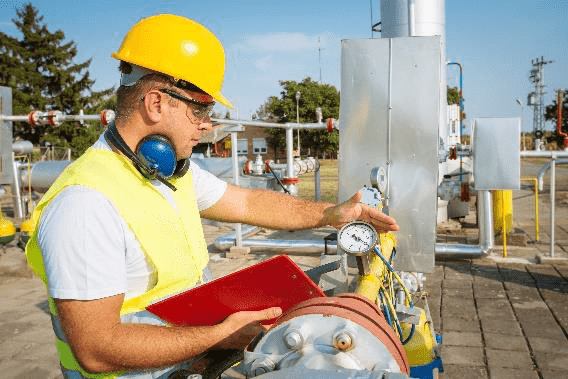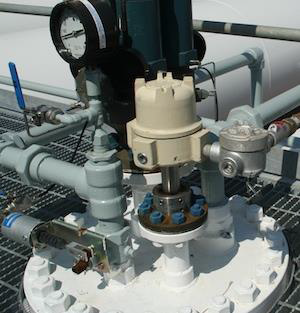COURSE OVERVIEW
IE0367 : Maintain Fire and Gas Control Systems

OVERVIEW
| COURSE TITLE | : | IE0367 : Maintain Fire and Gas Control Systems |
| COURSE DATE | : | Feb 04 - Feb 08 2024 |
| DURATION | : | 5 Days |
| INSTRUCTOR | : | Dr. Hassan Ibrahim |
| VENUE | : | Dubai, UAE |
| COURSE FEE | : | $ 5500 |
| Request For Course Outline | ||
OTHER SCHEDULED DATES
| Date | : | Apr 21 - Apr 25 (5 Days) | Location | : | Doha, Qatar | Classroom Fee (US$) | : | $ 6000 | Course Info |
| Date | : | Jul 14 - Jul 18 (5 Days) | Location | : | Istanbul, Turkey | Classroom Fee (US$) | : | $ 6000 | Course Info |
| Date | : | Nov 03 - Nov 07 (5 Days) | Location | : | Dubai, UAE | Classroom Fee (US$) | : | $ 5500 | Course Info |
Course Description
This practical and highly-interactive course includes various practical sessions and exercises. Theory learnt will be applied using our state-ofthe-art simulators. This course is designed to provide a comprehensive overview of the Fire and Gas Control System. It covers the basics, types and importance of fire and gas systems in industrial safety; the different types of detectors like smoke, heat, gas and their operational principles; the system components and layout; the control panels, sensors, alarms and emergency shutdown systems; the relevant national and international standards (NFPA, OSHA, etc.) for fire and gas systems; the routine maintenance tasks, schedules and record-keeping; and the control system operation, control logic and response procedures. During this interactive course, participants will learn the routine maintenance procedures and the step-bystep guide on regular maintenance activities; the frequent operational problems in fire and gas systems; the techniques and best practices for calibrating different types of detectors; the procedures for conducting regular system tests and inspections; the importance of maintaining accurate records in compliance with safety regulations; the preventive maintenance plan and the techniques to handle complex issues and system malfunctions; the software/firmware updates to control systems and ensuring uninterrupted power supply and maintaining backup batteries; the sensor sensitivity and environmental challenges; the emergency situations involving fire and gas leak; and the strategies to calibrate detectors and operate control panels link to course overview PDF
TRAINING METHODOLOGY
This interactive training course includes the following training methodologies as a percentage of the total tuition hours
LecturesWorkshops & Work Presentations
Case Studies & Practical Exercises
Videos, Software & Simulators
In an unlikely event, the course instructor may modify the above training methodology before or during the course for technical reasons.
VIRTUAL TRAINING (IF APPLICABLE)
If this course is delivered online as a Virtual Training, the following limitations will be applicable
| Certificates | : | Only soft copy certificates will be issued to participants through Haward’s Portal. This includes Wallet Card Certificates if applicable |
| Training Materials | : | Only soft copy Training Materials (PDF format) will be issued to participant through the Virtual Training Platform |
| Training Methodology | : | 80% of the program will be theory and 20% will be practical sessions, exercises, case studies, simulators or videos |
| Training Program | : | The training will be for 4 hours per day starting at 09:30 and ending at 13:30 |
| H-STK Smart Training Kit | : | Not Applicable |
| Hands-on Practical Workshops | : | Not Applicable |
| Site Visit | : | Not Applicable |
| Simulators | : | Only software simulators will be used in the virtual courses. Hardware simulators are not applicable and will not be used in Virtual Training |
RELATED COURSES

IE0709 : Certified Cyber Security Practitioner (ISACA Exam Preparation Training)
- Date : Dec 16 -Dec 18 / 3 Days
- Location : Dubai, UAE
- Course Details Register

IE0104 : Data Communications & Networking
- Date : Dec 16 -Dec 20 / 3 Days
- Location : Abu Dhabi, UAE
- Course Details Register

IE0236 : Safety Integrity Level/Layer of Protection Analysis (SIL/LOPA)
- Date : Nov 11 -Nov 14 / 3 Days
- Location : Dubai, UAE
- Course Details Register

IE0047 : Tank Gauging
- Date : Dec 16 -Dec 19 / 3 Days
- Location : Abu Dhabi, UAE
- Course Details Register
